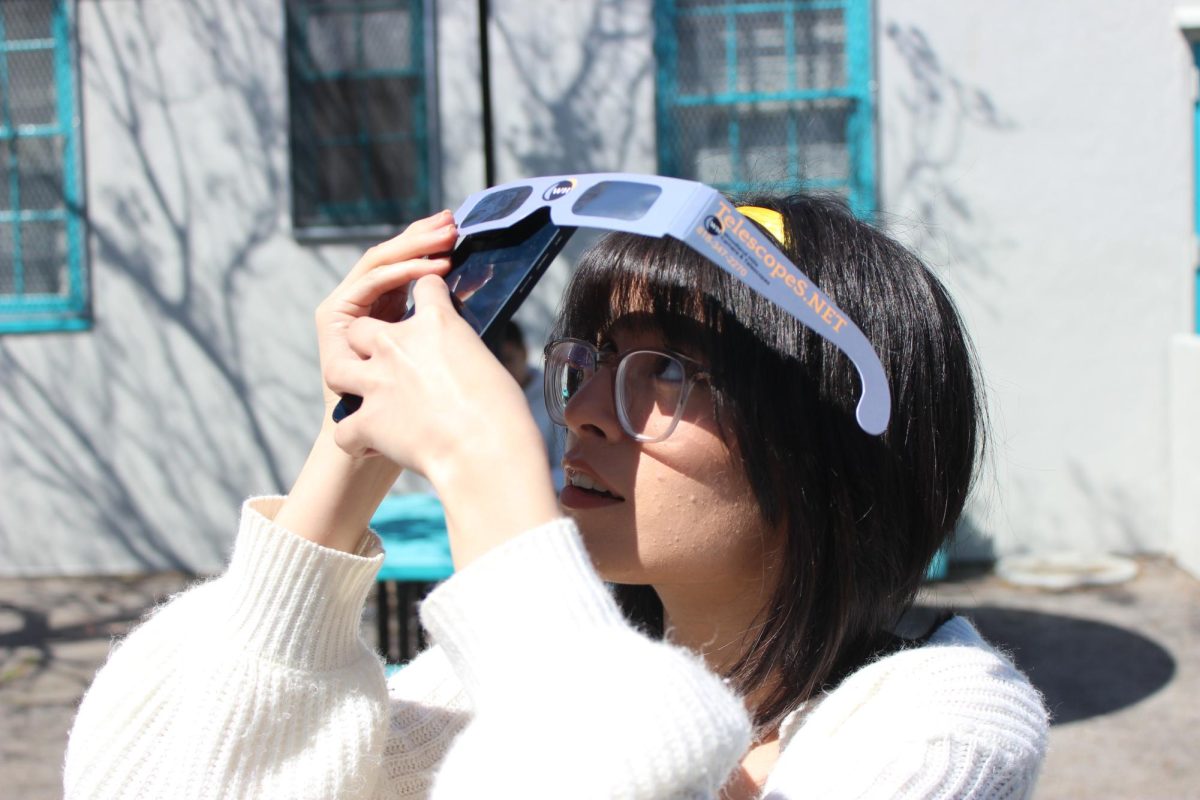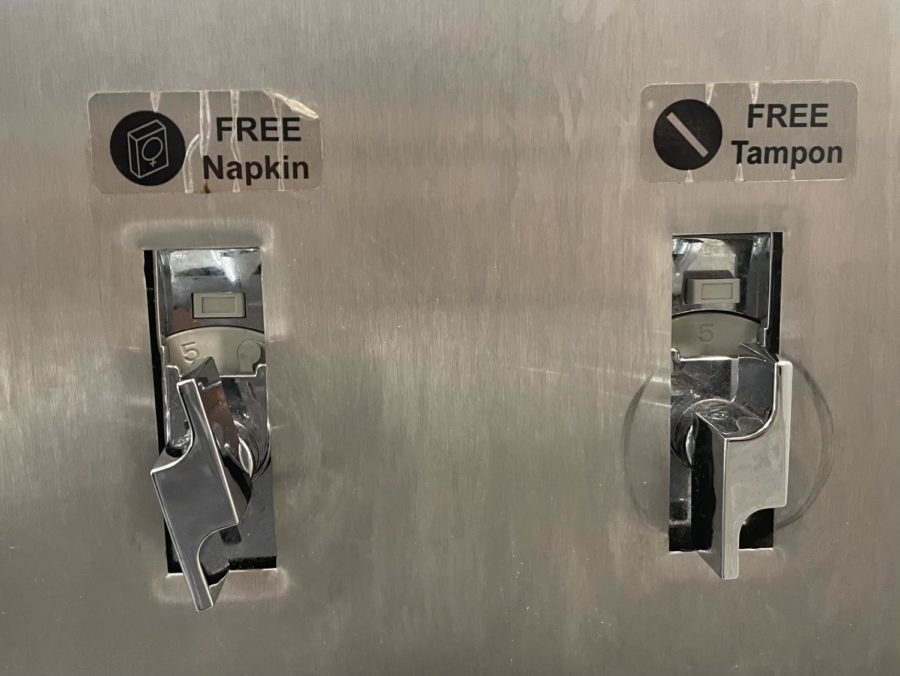Every girl remembers their first period. Mine was a seventh grade slumber party. Staring at the tile floor of my best friend’s bathroom, listening to giggles from the basement, embarrassment and confusion quickly set in. I didn’t know whether to find her mom, tell my friend, or deal with it myself. A quick search of the bathroom cabinet provided me with what I needed. Frantically scanning the directions on the box, I put it to use and pocketed the evidence in my pink pajama pants. What I didn’t know when I unwrapped that first tampon, is that a period becomes a routine.
It doesn’t become less annoying or painful, but it’s manageable, because Tampax is my closest ally. I don’t leave the house without it: Keys, phone, wallet, tampon. It’s a delicate balance, one that requires consistency and attention. But I’m not perfect, which is why periods are a problem for me and many others. If my routine is interrupted, and I find myself without hygienic products when I need them, I’m thirteen again, back in my friend’s bathroom.
At Wayland High School, students who menstruate find themselves in this uncomfortable situation more often than we would like to believe. If you do not bring your own pads or tampons to school, you’re out of luck. The sanitary products dispensers in the bathrooms have been empty for years. In fact, I can’t remember a time when the “free tampon” dial was anything more than storage space for extra paper towels. We’re all mature enough to know that periods are an inescapable truth of life. The lack of these crucial items isn’t just a disservice, but an injustice to our students.
It’s true that we do have access to tampons and pads, but only if you know where to find them. Our school’s supply finds its home in the nurse’s office, which presents an issue when you realize that this is on the other side of campus from where students spend the bulk of their time at school. Further, there is no information or advertisements notifying students that they can access products there. Personally, I didn’t know I could find products at the nurse’s office until about two weeks into my senior year. It’s completely unrealistic that a person would make the trek across campus just to get something that should be accessible to them.
And it’s not a given to assume that all people who menstruate have the access or ability to bring their own products to school. Period poverty is a nationwide issue, and Wayland is not exempt. Period poverty is defined as inadequate access to menstrual hygiene tools and education. The average box of tampons costs about $7. This may seem insignificant, but considering that every box includes about 36 tampons, and a person goes through around 20 tampons per cycle, this cost adds up fast. A study by Huffington Post calculated that the average person who menstruates spends about $1,773.33 on hygiene products throughout their lifetime. This is a cost that many people cannot take on, and could be alleviated by free access to sanitary products at school.
There’s always the possibility that students could ask a friend or a classmate for a tampon. However, there’s also the possibility that they don’t have one, in which case you are back to square one. If you’re in the middle of a lecture, most people don’t want to waste that precious educational time searching for such an essential need.
Menstrual products are absolutely imperative. But the debate is over whether or not it’s the school’s responsibility to supply them. Sure, it’s not a dire necessity like food or water, but think about toilet paper. Everyone needs toilet paper. It’s unreasonable to suggest that everyone bring their own toilet paper with them every time they need it. It would be ridiculous to tell people to walk to the opposite side of campus when they want it. It’s downright laughable to say that toilet paper is a luxury. It goes without saying that our bathrooms supply toilet paper. The same can easily be done for period products.
Of course, periods are nothing to be embarrassed about. That doesn’t mean that for teen girls, they aren’t embarrassing. After all, a lot of things can be mortifying at this age. But it’s not just about pride. By not supplying sanitary products to students, our school places us in a vulnerable position. Why should we make periods more of a burden to our students than they already are?
Worrying about periods impedes learning, impedes confidence, and makes school a harder place to be.
— Genevieve Morrison
I’m not the first one who’s faltered in my routine at school, and I’m not the only one who’s had to deal with the uncomfortable consequences. But with some action from our administration, we could be the last. Our school doesn’t have to be a place for where discomfort and anxiety run rampant. Wayland High School has a duty to take care of their students, which includes this rarely spoken of, yet too often withheld essential. Because I’m sure we all have better things to worry about than finding a tampon.
This story was originally published on Wayland Student Press on October 19, 2022.

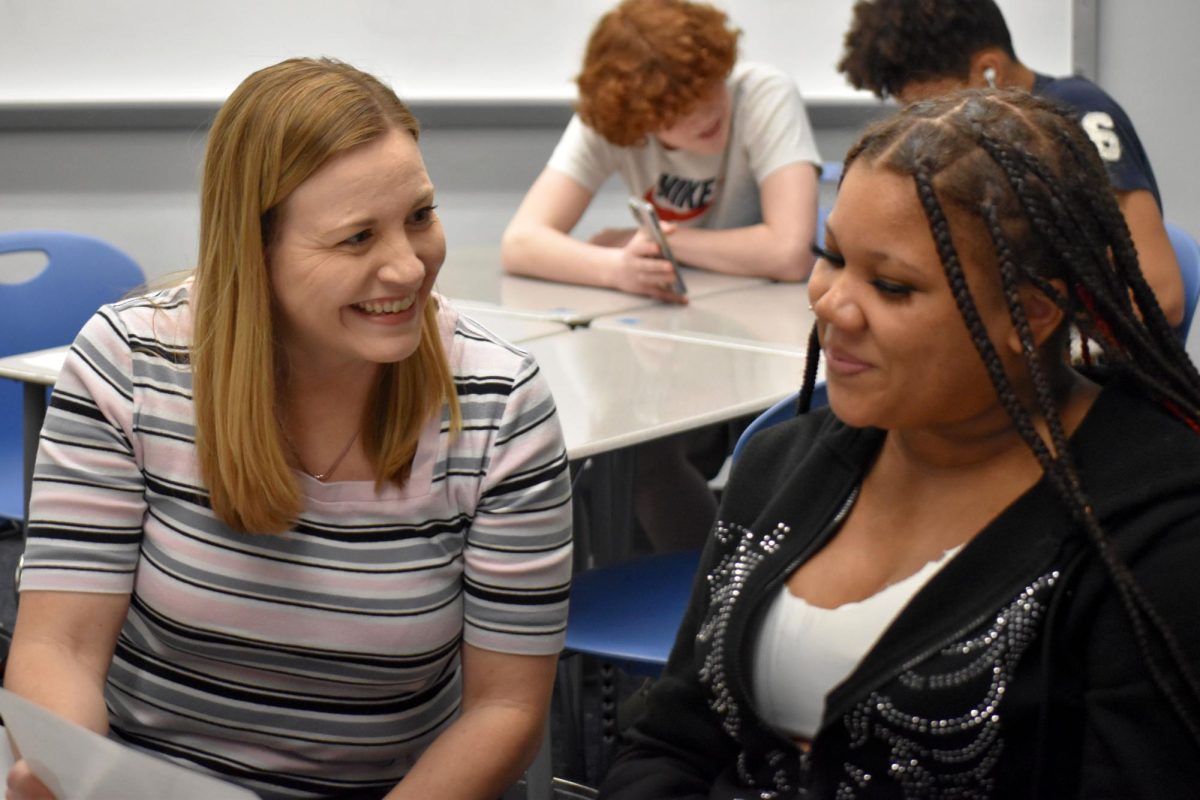

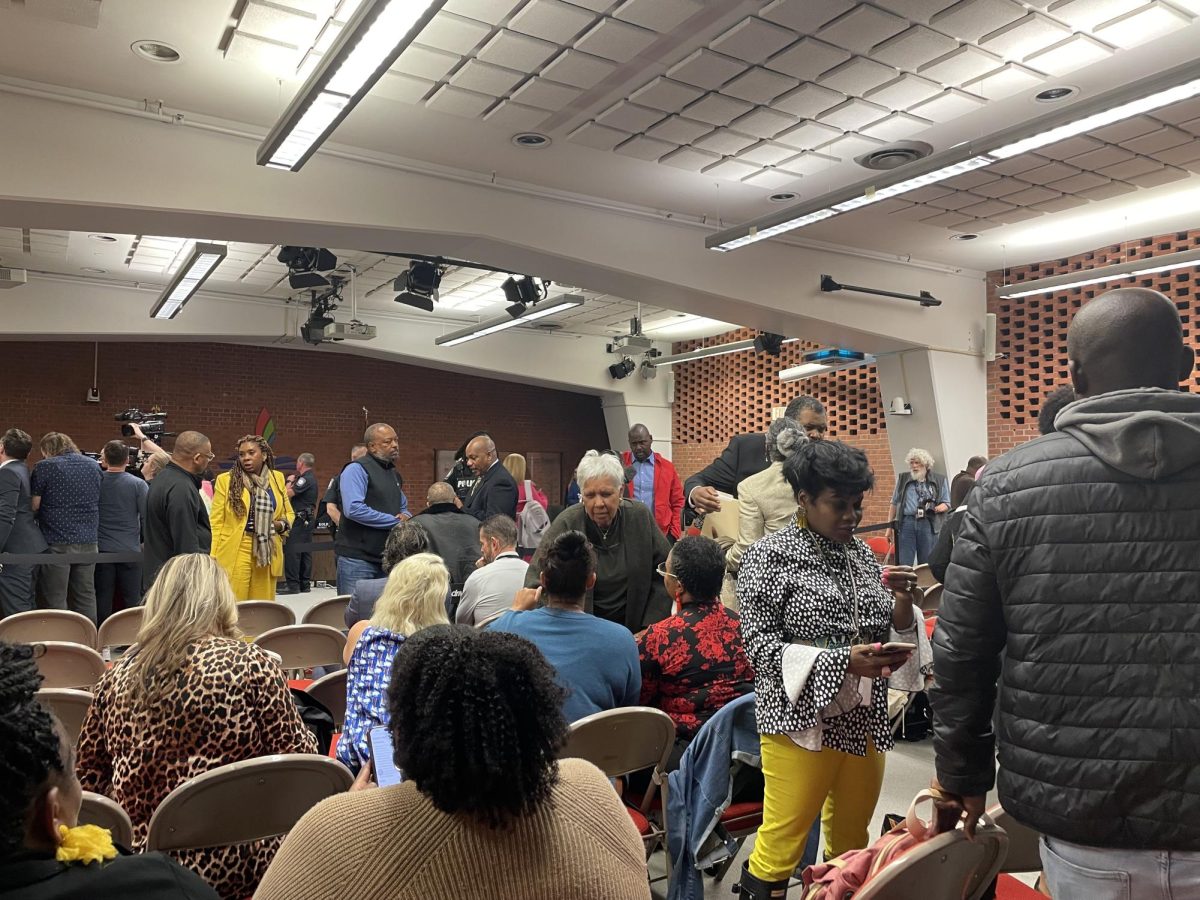


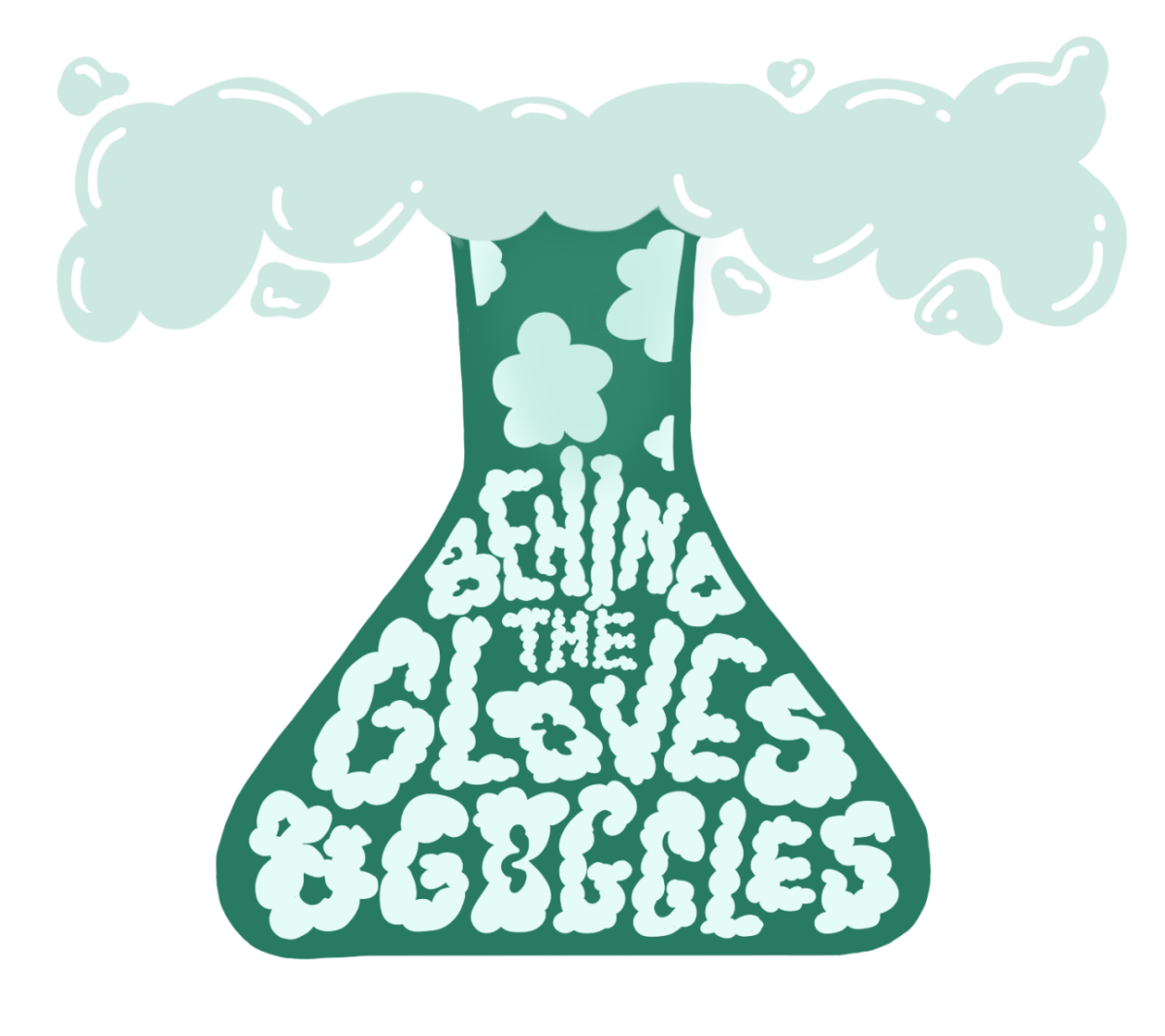

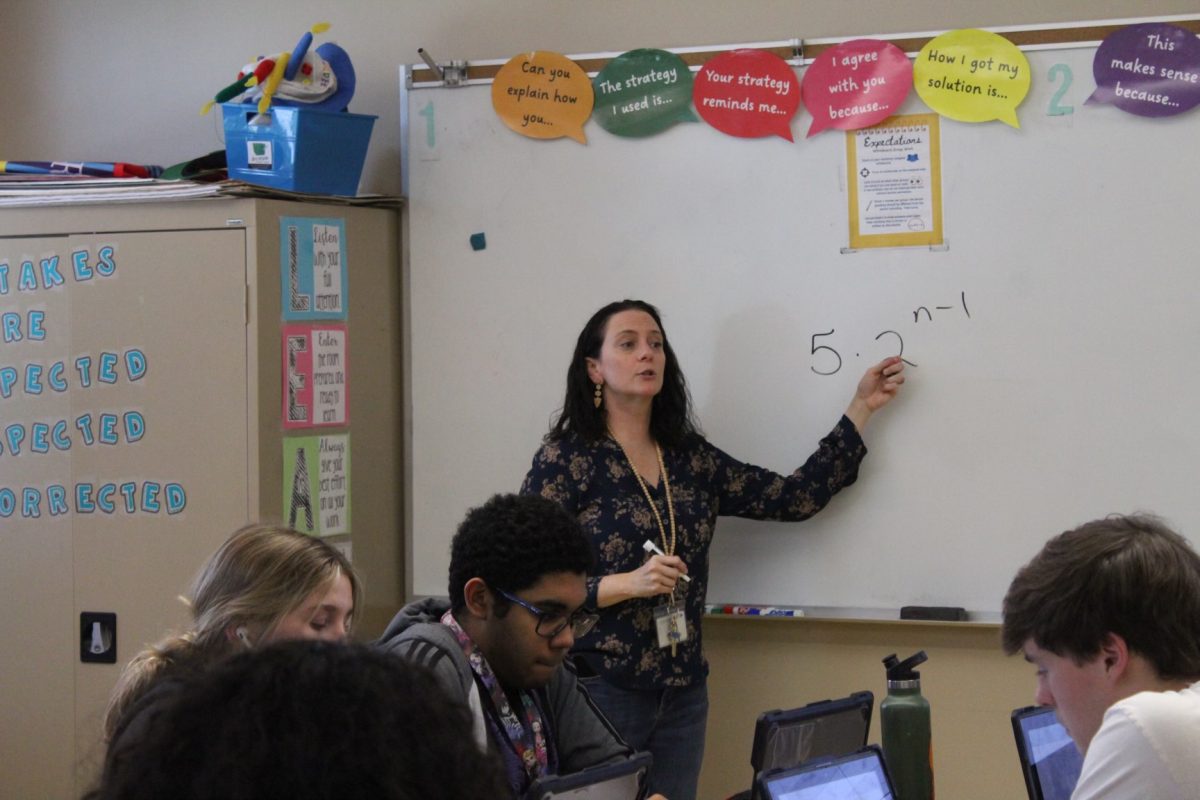
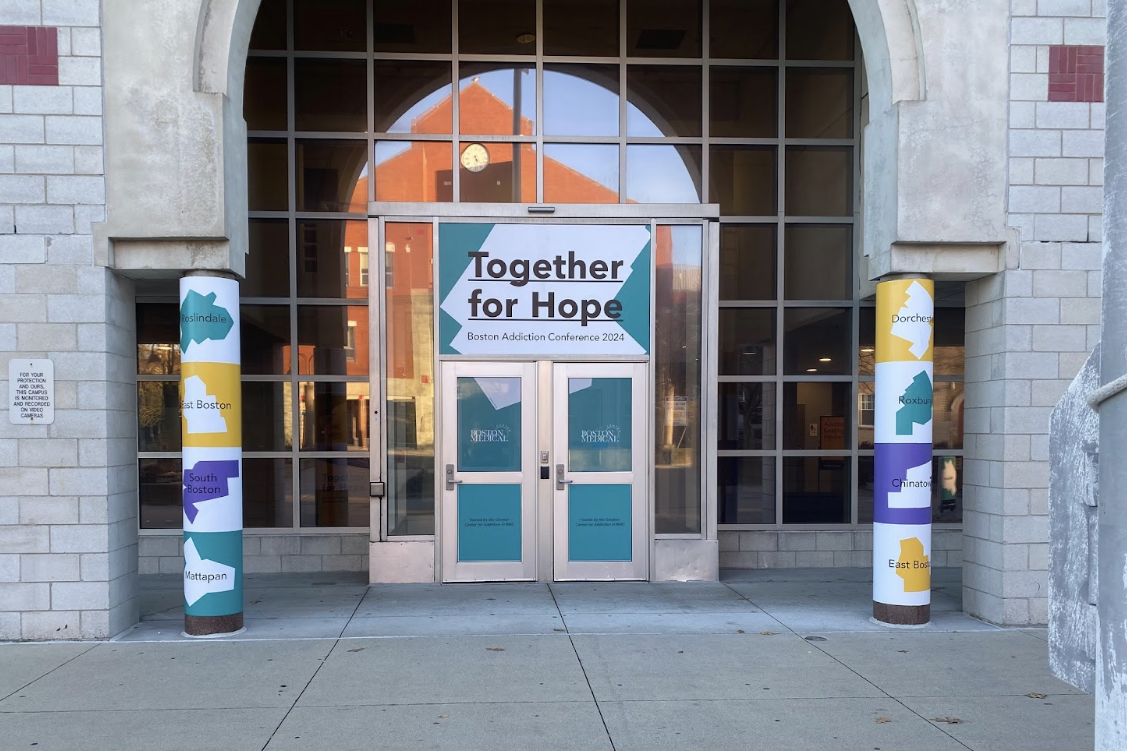




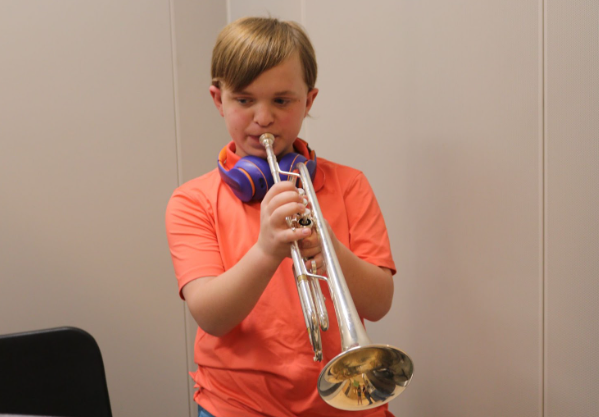





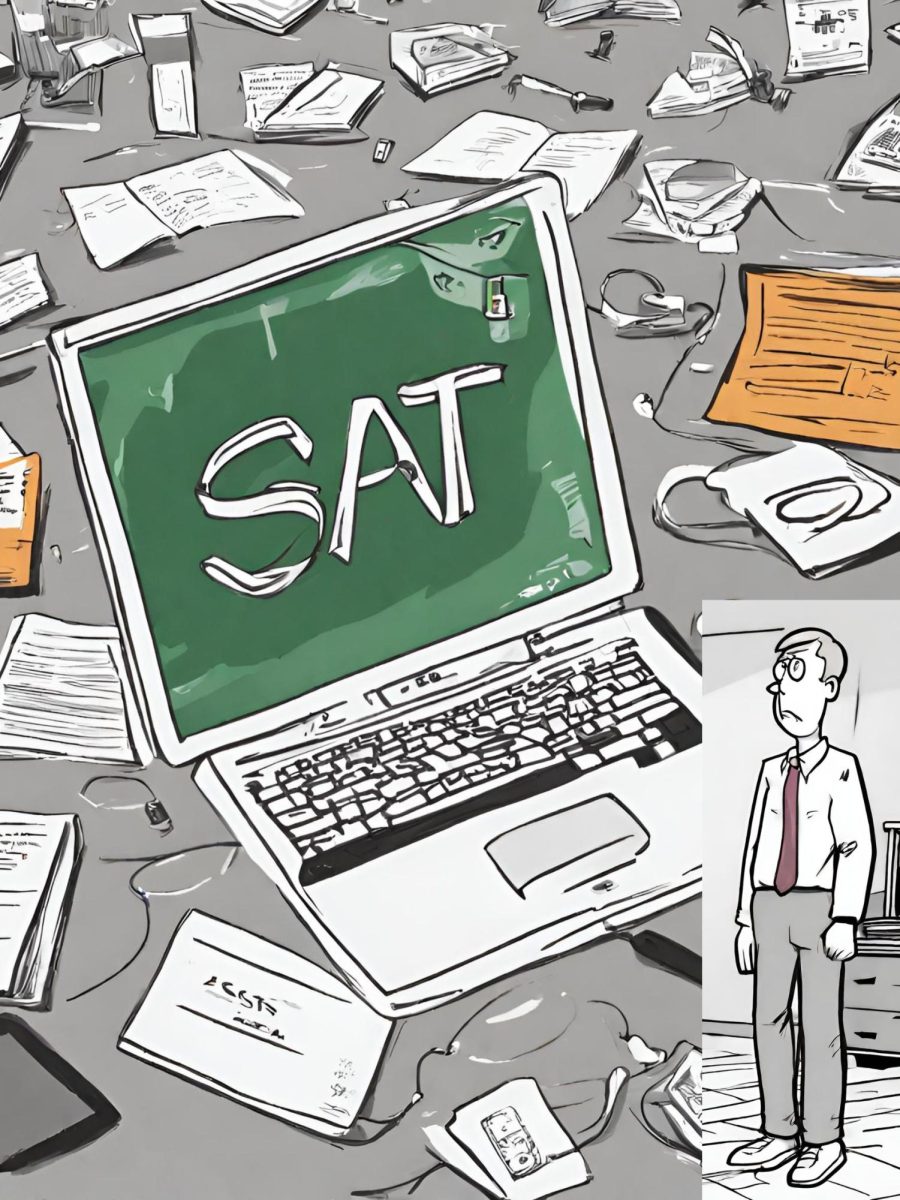









![IN THE SPOTLIGHT: Junior Zalie Mann performs “I Love to Cry at Weddings,” an ensemble piece from the fall musical Sweet Charity, to prospective students during the Fine Arts Showcase on Wednesday, Nov. 8. The showcase is a compilation of performances and demonstrations from each fine arts strand offered at McCallum. This show is put on so that prospective students can see if they are interested in joining an academy or major.
Sweet Charity originally ran the weekends of Sept. 28 and Oct. 8, but made a comeback for the Fine Arts Showcase.
“[Being at the front in the spotlight] is my favorite part of the whole dance, so I was super happy to be on stage performing and smiling at the audience,” Mann said.
Mann performed in both the musical theatre performance and dance excerpt “Ethereal,” a contemporary piece choreographed by the new dance director Terrance Carson, in the showcase. With also being a dance ambassador, Mann got to talk about what MAC dance is, her experience and answer any questions the aspiring arts majors and their parents may have.
Caption by Maya Tackett.](https://bestofsno.com/wp-content/uploads/2024/02/53321803427_47cd17fe70_o-1-1200x800.jpg)
![SPREADING THE JOY: Sophomore Chim Becker poses with sophomores Cozbi Sims and Lou Davidson while manning a table at the Hispanic Heritage treat day during lunch of Sept 28. Becker is a part of the students of color alliance, who put together the activity to raise money for their club.
“It [the stand] was really fun because McCallum has a lot of latino kids,” Becker said. “And I think it was nice that I could share the stuff that I usually just have at home with people who have never tried it before.”
Becker recognizes the importance of celebrating Hispanic heritage at Mac.
“I think its important to celebrate,” Becker said. “Because our culture is awesome and super cool, and everybody should be able to learn about other cultures of the world.”
Caption by JoJo Barnard.](https://bestofsno.com/wp-content/uploads/2024/01/53221601352_4127a81c41_o-1200x675.jpg)



